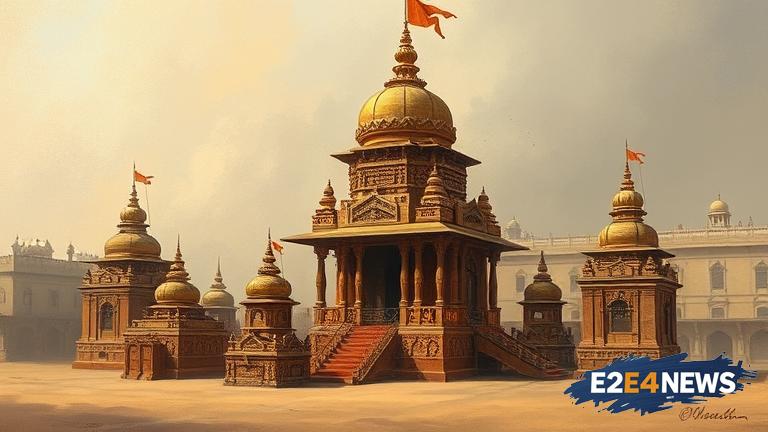In a momentous occasion for India, the sacred relics from the Piprahwa stupa have finally returned to their homeland after an absence of 127 years. The relics, which are believed to be associated with the Buddha, were excavated from the Piprahwa stupa in the late 19th century and were subsequently taken to the UK for safekeeping. However, their removal from India was a source of contention and sadness for many Indians, who felt that the relics were an integral part of their cultural and spiritual heritage. The Piprahwa stupa, located in the Basti district of Uttar Pradesh, is considered one of the most sacred sites in Buddhism, and the relics are revered by Buddhists around the world. The relics include a stone casket, a crystal reliquary, and other artifacts that are believed to contain the remains of the Buddha. The return of the relics to India is seen as a major triumph for the country’s cultural and diplomatic efforts. The Indian government had been negotiating with the UK for the return of the relics for several years, and the successful repatriation is a testament to the strong ties between the two countries. The relics were formally handed over to the Indian government in a ceremony attended by high-ranking officials from both countries. The return of the relics is expected to boost tourism and cultural exchange between India and the UK, and is seen as a significant step forward in the preservation and promotion of India’s rich cultural heritage. The Piprahwa relics are considered to be of immense historical and cultural significance, and their return to India is a source of great joy and pride for the Indian people. The relics will be housed in a special museum in India, where they will be preserved and displayed for the benefit of the public. The museum will also feature exhibits and interactive displays that will provide visitors with a deeper understanding of the history and significance of the relics. The return of the relics is also seen as a major boost to India’s efforts to promote Buddhism and Buddhist tourism in the country. India is home to many sacred Buddhist sites, including the Mahabodhi Temple in Bodh Gaya, and the return of the relics is expected to attract more tourists and pilgrims to these sites. The Indian government has announced plans to develop the Piprahwa stupa and its surrounding areas into a major tourist destination, with the relics as the main attraction. The development plans include the construction of a new museum, a Buddhist monastery, and other infrastructure facilities. The return of the relics is also expected to have a positive impact on the local economy, with the creation of new jobs and opportunities for local businesses. The Indian government has thanked the UK for its cooperation and assistance in the repatriation of the relics, and has pledged to work closely with the UK to promote cultural exchange and understanding between the two countries. The return of the relics is a significant milestone in the history of India-UK relations, and is seen as a major step forward in the preservation and promotion of India’s cultural heritage. The relics are a reminder of the rich cultural and historical ties between India and the UK, and their return is a testament to the strong bonds of friendship and cooperation between the two countries. The Indian government has announced plans to celebrate the return of the relics with a series of cultural and religious events, including a special ceremony at the Piprahwa stupa. The ceremony will be attended by high-ranking officials, Buddhist monks, and other dignitaries, and will feature traditional music, dance, and other cultural performances. The return of the relics is a momentous occasion for India, and is seen as a major triumph for the country’s cultural and diplomatic efforts. The relics are a source of great pride and joy for the Indian people, and their return is a testament to the country’s rich cultural and historical heritage.
